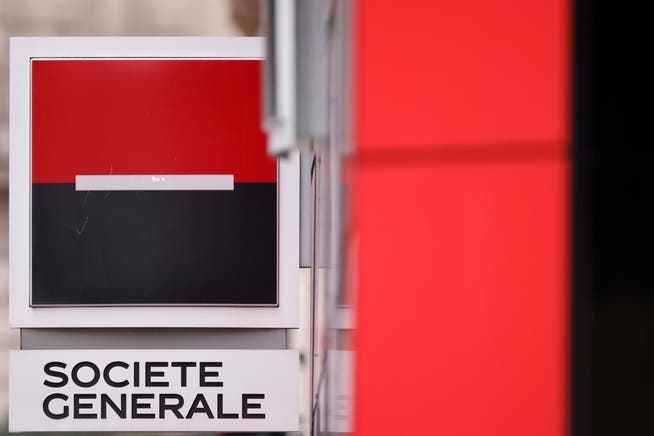Apple is struggling with major delivery problems with the iPhone 14 Pro
Apple is struggling with major delivery problems with the new iPhone 14 Pro.
(dpa) In the middle of the important Christmas business, Apple is struggling with significant delivery bottlenecks for the new iPhone 14 Pro. Production at the main plant in China is currently being affected by Covid restrictions, Apple said on Monday night. The factory runs with significantly reduced emissions. This will mean longer waiting times for customers.
Apple traditionally does its biggest business in the Christmas quarters – and usually even displaces Samsung from the top position in the smartphone market. Both the iPhone 14 Pro and the larger iPhone 14 Pro Max are affected by the bottlenecks, Apple said.
The models are not expected to hit the market until September along with the iPhone 14. Among other things, Apple equipped the Pro versions this year with significantly better cameras than the basic models – and according to market researchers they are correspondingly popular. The demand is unbroken, stressed Apple. The delivery problems should also affect the business figures.
Thousands of layoffs at Meta

According to a report by the US newspaper “Wall Street Journal”, Meta employees have to prepare for thousands of layoffs.
(Reuters/esb.) According to the Wall Street Journal, Facebook parent Meta will begin laying off thousands of employees this week. In its report on Sunday (November 6, local time), the newspaper refers to people familiar with the matter. Accordingly, the layoffs are to be announced as early as Wednesday.
Meta had forecast a weak holiday quarter in October and significantly higher costs next year. That would take away about $67 billion from Meta’s market value, on top of the more than half a trillion dollars it lost so far this year. Meta is struggling with slower global economic growth, competition from TikTok, privacy changes from Apple, and concerns about massive Metaverse spending and possible government regulation.
Meta boss Mark Zuckerberg believes that the investments in the Metaverse will only bear fruit in ten years. Meanwhile, he imposed a hiring freeze, shelved projects, and restructured teams to cut costs. “In 2023, we will focus our investments on a small number of high-priority growth areas. That means some teams will grow significantly, but most others will stagnate or shrink over the next year. Overall, we assume that by the end of 2023 we will be about the same size or even slightly smaller than today,” Zuckerberg said at the last balance sheet conference at the end of October.
The company had already cut plans to hire engineers by at least 30% in June. Zuckerberg warned his employees to prepare for an economic downturn.
Meta shareholder Altimeter Capital Management had previously warned in an open letter to Mark Zuckerberg that the company needed to cut jobs and cut capital spending. Meta has lost the confidence of investors by concentrating on the Metaverse.
Succession at the company Red Bull clarified

Oliver Mintzlaff, the CEO of RB Leipzig, changes to the Red Bull leadership.
mbe After the death of company founder Dietrich Mateschitz, the successor at energy drink manufacturer Red Bull has been clarified. The operational business will be taken over by a management trio, as announced on Friday. One of the new bosses is Oliver Mintzlaff, previously boss of the Bundesliga soccer club RB Leipzig. He will be responsible for all of the company’s sports investments. The beverage business will be managed by the longstanding group manager Franz Watzlawick. Third in the group is Alexander Kirchmayr, the new chief financial officer.
Mateschitz’ son Mark will not take on any operational roles in the company and will limit himself to his role as shareholder. Likewise, the Thai family Yoovidhya, which owns 51 percent of Red Bull, will stay out of the operative business as before. This successor solution was agreed by his father and he and is supported by the Thai partners, Mark Mateschitz explained in a letter to the Red Bull employees.
More on that: Dietrich Mateschitz was an unconventional marketing genius.
The companies expect wage increases of 2.4 percent
tsf. Employees in Switzerland can expect wage increases in the coming months. As a survey by the economic research center KOF in October shows, the sectors are assuming an average salary increase of 2.4 percent. As a result, wages are still slightly losing purchasing power, as inflation is currently 3 percent.
The economic survey also shows that the business situation of companies is cooling off. As the KOF announced on Friday, the business situation indicator for the Swiss private sector fell significantly in October. The situation of the companies is still predominantly good. However, the business situation indicator was last in June 2021 at a lower level than it is currently. In the manufacturing sector in particular, the signs of a slowdown in business activity are unmistakable.
Société Générale earns more than expected

The major French bank Société Générale exceeded expectations despite falling profits.
(dpa) The major French bank Société Générale earned less in the third quarter due to higher loan loss provisions and costs for restructuring the group. The surplus fell by 6 percent year-on-year to 1.5 billion euros, the bank announced on Friday in Paris. Despite the decline, it exceeded the expectations of the experts, who had expected a much sharper drop in profits. The bank’s income increased by 2 percent to 6.8 billion euros. However, this was eaten up by rising costs and, above all, a significantly higher provision for loan defaults. The latter had to be increased from almost EUR 200 million in the same quarter of the previous year to EUR 456 million.
